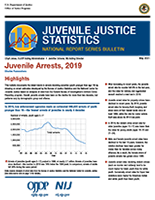Larceny/theft
Restoration of Defaced Serial Numbers using Lock-in Infrared Thermography (Part II)
Measuring Positive Externalities From Unobservable Victim Precaution: An Empirical Analysis of Lojack
Gun Theft and Crime
Situational Deterrence and Claim Padding: Results From a Randomized Field Experiment
Public Mass Shootings: Database Amasses Details of Half Century of U.S. Mass Shootings
NIJ-Funded Research on Firearms Violence in Urban Cities Advancing Scientific Evidence to Inform Practice
In this full thematic panel, renowned experts will present a series of papers summarizing the newest findings of NIJ-funded research projects on criminal offenses with firearms in urban areas. Researchers used various criminological and other theories, including routine activity theory, socio-ecological and socio-environmental perspectives, and advanced mixed-study methods, including surveys and spatio-temporal designs, to produce scientific evidence to inform practice.
See the YouTube Terms of Service and Google Privacy Policy
Teacher Victimization and Turnover: Focusing on Different Types and Multiple Victimization
Peer Delinquency among Digital Natives: The Cyber Context as a Source of Peer Influence
Secretariat for ISO/IEC JTC 1/SC 37, Biometrics
Optimizing the geographic deployment of hot spot patrols with license plate readers
Dealing with the Day-to-Day: Harnessing School Climate to Address the Effects of Student Victimization on Academic Performance
What is Stalking?
A Comparative Analysis of Crime Guns
Multi-Component Efforts to Improve School Safety - Breakout Session, NIJ Virtual Conference on School Safety
On February 16-18, 2021, the National Institute of Justice hosted the Virtual Conference on School Safety: Bridging Research to Practice to Safeguard Our Schools. This video includes the following presentations:
See the YouTube Terms of Service and Google Privacy Policy
School Safety: A Focus on Teachers and Administrators - Breakout Session, NIJ Virtual Conference on School Safety
On February 16-18, 2021, the National Institute of Justice hosted the Virtual Conference on School Safety: Bridging Research to Practice to Safeguard Our Schools. This video includes the following presentations:
See the YouTube Terms of Service and Google Privacy Policy
Juvenile Arrests, 2019
Landscape Study of Software-Based Evidence Management Systems for Law Enforcement
Recover Me if You Can: Assessing Services to Victims of Identity Theft
"Gotta Make Your Heaven": Guns, Safety, and the Edge of Adulthood in New York City
Advancing Understanding, and Informing Prevention of Public Mass Shootings: Findings from NIJ Funded Studies, Part 2
In recent years, NIJ invested in several research projects to advance understanding and inform prevention of public mass shootings.
See the YouTube Terms of Service and Google Privacy Policy




